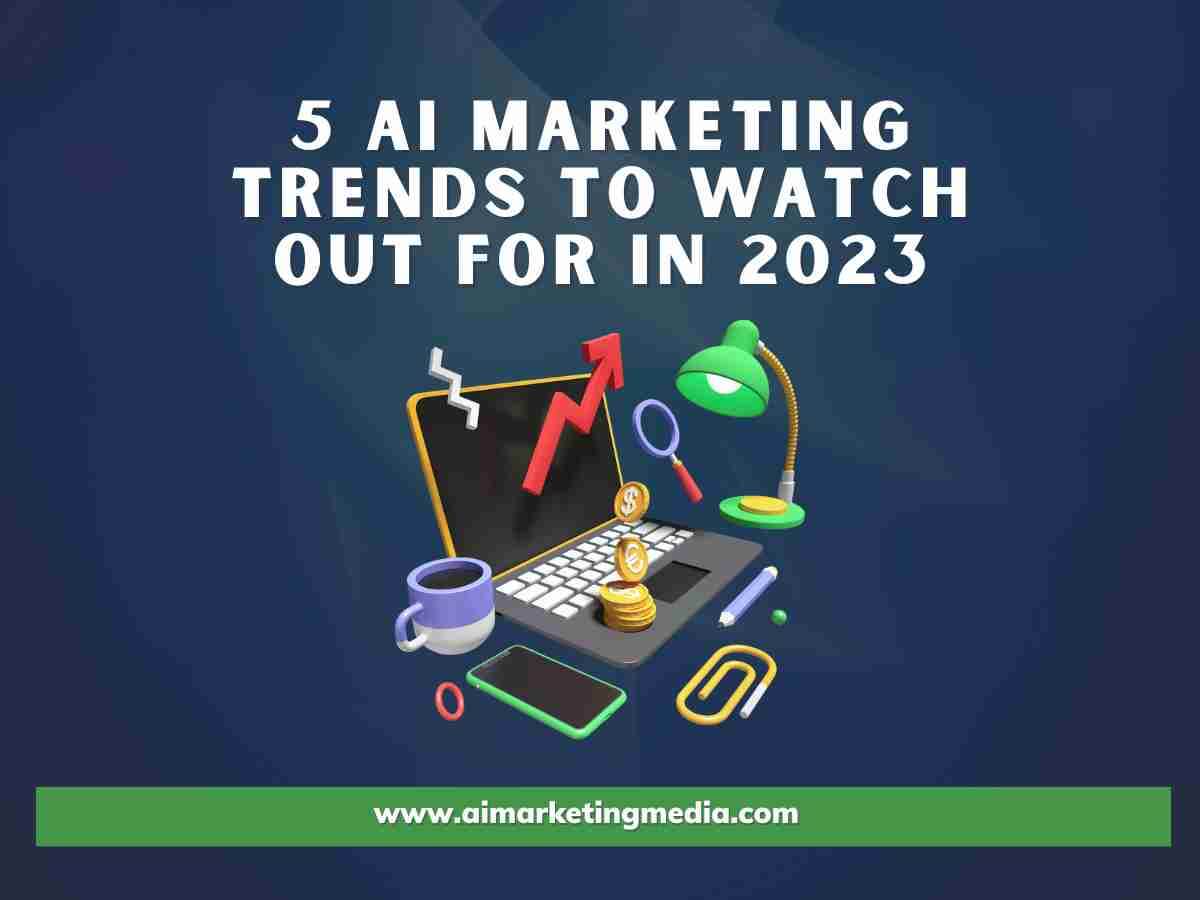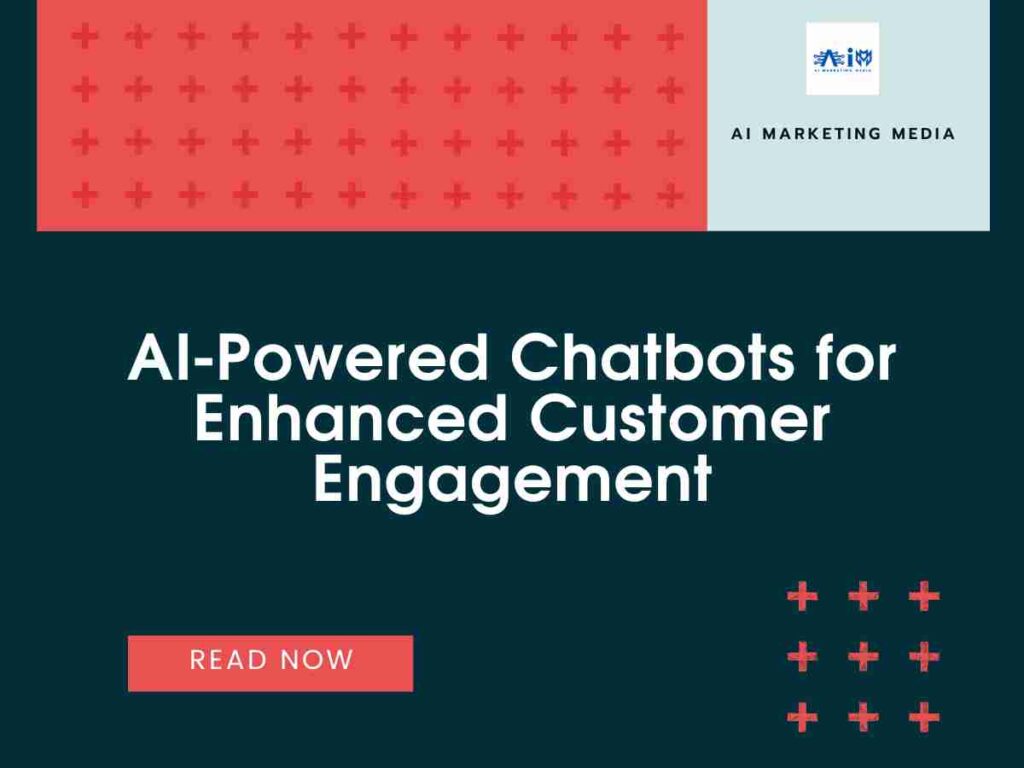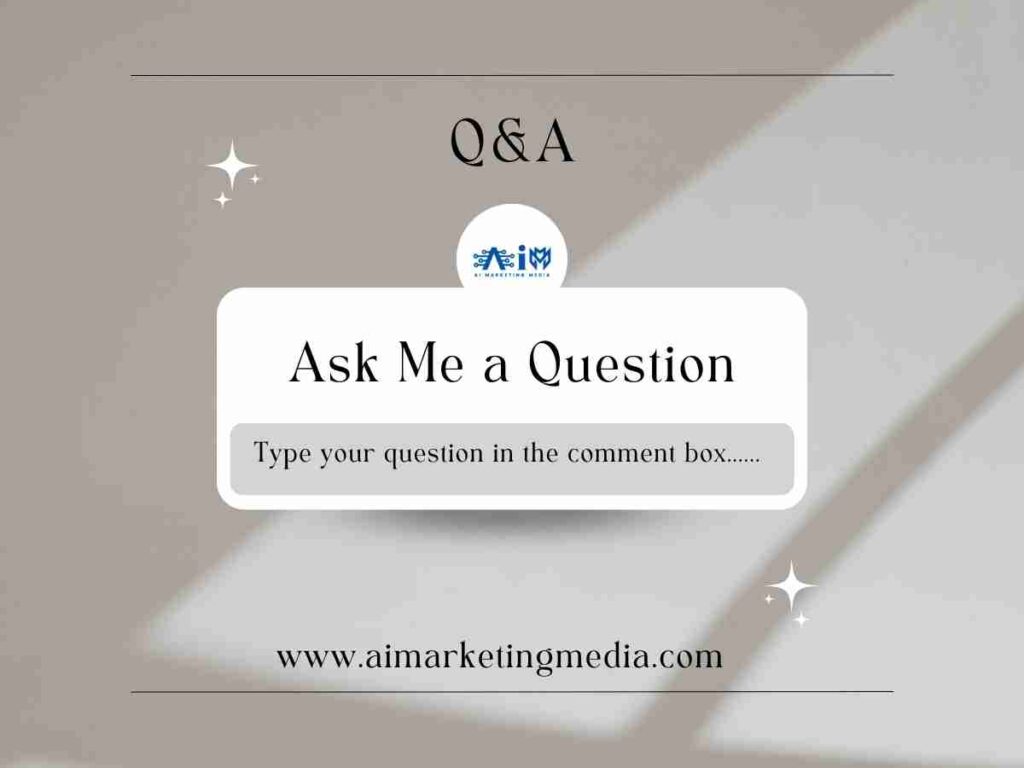Physical Address
India

In the ever-evolving world of marketing, staying ahead of the curve is crucial. As we dive into 2023, it’s becoming increasingly clear that artificial intelligence (AI) will play a pivotal role in shaping marketing strategies. The power of AI lies in its ability to analyze vast amounts of data, provide valuable insights, and automate processes, revolutionizing the way businesses connect with their audiences. In this article, we will explore five AI marketing trends that you should keep a close eye on in 2023.
One of the most significant advantages AI brings to the table is its capacity to deliver personalized experiences at scale. By leveraging AI algorithms, marketers can collect and analyze customer data to gain deep insights into their preferences, behaviors, and needs. With this knowledge, businesses can create tailored marketing campaigns that resonate with individual customers, fostering stronger connections and boosting engagement.
AI-powered personalization goes beyond basic segmentation. It enables marketers to create hyper-targeted content, recommend personalized products or services, and deliver individualized messaging across various touchpoints. By harnessing AI’s capabilities, businesses can provide seamless, personalized experiences that drive customer satisfaction and loyalty.
Live Example:
Amazon is a prime example of personalization at scale. Their recommendation engine utilizes AI algorithms to analyze customer browsing and purchase history, as well as the behavior patterns of similar customers. Based on this data, Amazon provides personalized product recommendations to each customer, enhancing the shopping experience and driving higher engagement and sales.
The rise of voice assistants and smart speakers has transformed the way people search for information and interact with technology. Voice search has gained tremendous popularity, and optimizing your marketing efforts for this trend is crucial. AI plays a pivotal role in voice search optimization, as it helps understand natural language, context, and intent.
To succeed in the era of voice search, marketers must optimize their content for voice queries. This involves using long-tail keywords, conversational language, and providing direct, concise answers to common questions. AI-powered voice assistants can analyze user patterns and preferences, enabling marketers to optimize their content and capture valuable voice search traffic.
Example:
Google Assistant is a prominent example of voice search optimization. By using natural language processing and machine learning, Google Assistant understands voice queries and provides accurate and relevant answers. Users can ask questions, set reminders, and perform various tasks by simply speaking to their devices, making voice search an integral part of their daily lives.
Content creation is a time-consuming task for marketers. However, AI-powered tools can now assist in generating high-quality content more efficiently. Natural Language Processing (NLP) algorithms can analyze vast amounts of data, identify trends, and create engaging content tailored to specific target audiences.
With AI, marketers can automate repetitive content creation tasks, such as drafting blog posts, social media updates, and email campaigns. AI tools can also help ensure content is error-free, well-structured, and optimized for SEO. By leveraging AI-driven content creation, marketers can save time and resources while maintaining a consistent stream of valuable content.
Example:
Grammarly, an AI-powered writing assistant, is a notable example of AI-driven content creation. It analyzes written content, detects grammatical errors, suggests improvements, and provides writing clarity and style recommendations. Grammarly helps writers produce high-quality content efficiently by automating the editing and proofreading process.
Data-driven decision making is at the core of successful marketing strategies. In 2023, AI-powered predictive analytics will become increasingly vital in understanding customer behavior, identifying trends, and making informed business decisions. AI algorithms can analyze large datasets, detect patterns, and provide actionable insights that drive marketing success.
Predictive analytics can help marketers identify opportunities, forecast campaign performance, and optimize marketing spend. By leveraging AI, businesses can unlock valuable insights into customer preferences, predict future behavior, and tailor their strategies accordingly. This enables marketers to make data-backed decisions that maximize ROI and drive business growth.
Example:
Netflix employs predictive analytics to enhance its content recommendation system. By analyzing user behavior, viewing history, and preferences, Netflix predicts which movies or TV shows a user is likely to enjoy. This personalized recommendation engine enhances the user experience, keeping viewers engaged and increasing the likelihood of continued subscription.

Customer engagement is a key driver of brand loyalty and satisfaction. AI-powered chatbots have revolutionized customer support by offering instant, personalized assistance. These virtual assistants leverage AI and natural language processing to understand and respond to customer queries in real-time, providing 24/7 support.
AI-powered chatbots can handle routine inquiries, provide product recommendations, and guide customers through the purchasing process. They offer a seamless and efficient customer experience, saving time for both businesses and consumers. Chatbots also collect valuable data to further enhance customer profiles and preferences, enabling businesses to deliver targeted marketing messages and personalized offers.
By implementing AI-powered chatbots, businesses can streamline their customer service operations, reduce response times, and improve overall customer satisfaction. Chatbots can handle a large volume of inquiries simultaneously, ensuring that no customer is left waiting. Additionally, they continuously learn from customer interactions, allowing them to provide more accurate and helpful responses over time.
Moreover, chatbots can be integrated with other AI technologies, such as natural language processing and sentiment analysis, to detect customer emotions and tailor their responses accordingly. This level of personalization creates a more human-like and engaging experience, strengthening the bond between the customer and the brand.
Example:
Sephora, a renowned beauty retailer, uses AI-powered chatbots to provide personalized assistance to customers. Their chatbot, Sephora Virtual Artist, helps users try on virtual makeup, get product recommendations, and learn beauty techniques. The chatbot engages customers in real-time conversations, simulating a personalized in-store experience and offering convenience and support 24/7.
These live examples demonstrate how AI is already being implemented across various industries to drive marketing success and enhance customer experiences. They showcase the practical applications and benefits of AI in shaping the future of marketing strategies.
In conclusion, the world of marketing is evolving rapidly, and AI is driving significant changes. The five AI marketing trends discussed in this article – personalization at scale, voice search optimization, AI-driven content creation, predictive analytics, and AI-powered chatbots – are set to shape the marketing landscape in 2023 and beyond.
To stay competitive and succeed in the digital age, businesses must embrace these trends and harness the power of AI to gain valuable insights, connect with their target audiences on a deeper level, and optimize their marketing efforts. By leveraging AI technologies, businesses can unlock new opportunities, enhance customer experiences, and drive growth in an increasingly data-driven and dynamic market.
As you plan your marketing strategy for 2023, consider the potential of AI and how it can revolutionize your approach. Embrace these AI marketing trends, experiment with new technologies, and stay ahead of the curve. With the right implementation and a customer-centric mindset, you can position your business at the forefront of innovation and leave your competitors behind.

Ans: AI marketing trends refer to emerging technologies and strategies that utilize artificial intelligence to enhance marketing efforts and improve customer engagement.
Ans: Businesses should pay attention to AI marketing trends because they have the potential to revolutionize marketing strategies, optimize customer experiences, and drive better results in a highly competitive market.
Ans: AI enables personalization at scale by analyzing large amounts of customer data, identifying patterns and preferences, and delivering tailored content and recommendations to individual customers in a scalable manner.
Ans: Voice search optimization involves optimizing content and strategies to cater to voice-based queries made through devices like smart speakers and voice assistants. It is important because voice search is becoming increasingly popular and requires a different approach than traditional text-based search.
Ans: AI can assist in content creation by automating tasks such as generating content ideas, creating written content, proofreading, and ensuring the content is well-optimized for search engines.
Ans: Predictive analytics, in AI marketing, involves using algorithms and data analysis to predict future outcomes and trends. It helps marketers make informed decisions, forecast campaign performance, and optimize marketing strategies.
Ans: AI-powered chatbots can benefit customer engagement by providing instant and personalized assistance, answering frequently asked questions, guiding customers through the sales process, and offering 24/7 support.
Ans: Yes, AI marketing trends are relevant to businesses of various sizes and industries. AI technologies can be adapted to suit specific business needs and goals, enabling companies to stay competitive and deliver better customer experiences.
Ans: Some potential challenges of implementing AI marketing trends include the need for proper data management, ensuring data privacy and security, integrating AI technologies into existing systems, and addressing ethical considerations.
Ans: Businesses can learn more about AI marketing trends and their implementation through industry publications, attending conferences and webinars, seeking advice from AI marketing experts, and exploring online resources and case studies.
These FAQs provide a starting point for understanding the key concepts and considerations related to AI marketing trends in 2023.
